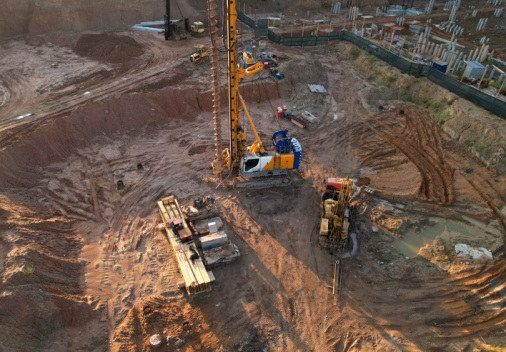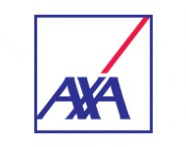Geotechnical engineers – to hire or not to hire?

Authored by AXA XL Risk Manager, Design Professional Brett Stewart, J.D.
As project owners look to simplify their responsibilities and increase efficiency, their fondness for turn-key contractual arrangements with a single design consultant could lure you into taking a risk that you’re better off avoiding.
The AXA XL Design Professional team has seen a recent trend in which more project owners are requiring prime design consultants to directly hire a geotechnical engineer for a project.
This is a risky endeavor. A significant number of claims made against designers who contract directly with owners, also known as primes, arise from the actions of their subconsultants. For example, if the owner insists that your firm, as the prime, hire a geotechnical engineer and there are errors in the geotechnical investigation that cause damages to the owner, then the owner may pursue a breach-of-contract action against your firm.
Geotechnical engineers have one of the highest risk profiles of all design professionals. Our Risk Drivers research shows that the average dollar loss per claim for geotechnical engineers is more than twice that of the average loss per claim for other design professionals we insure.
The best advice for design firms that do not provide in-house geotechnical engineering services is to avoid this exposure altogether. The traditional design-bid-build delivery model has the owner contracting directly for certain specialty services, like geotechnical engineering. (For example, the American Institute of Architects B101TM owner-architect agreement provides that the owner furnish the services of geotechnical engineers.) But when an owner requires the prime consultant to hire the geotechnical engineer, it forces the prime to assume liability for the geotechnical design.
While some design firms might walk away from such a contractual requirement, others are taking steps such as the following to control this exposure and manage this risk much the same as they would when hiring any subconsultant:
1. Consider whose geotechnical engineer you’re hiring. Occasionally, owners will require the prime consultant to hire the owner’s geotechnical engineer, or someone from a list of engineers that fulfill public agency contracting requirements. If your firm has never worked with the owner’s geotechnical engineer, or the engineer has a claims history that demonstrates they’re not a good fit, then strongly consider passing on this arrangement entirely. If you feel compelled to accept the risk, then consider obtaining a waiver and indemnity from the owner for any geotechnical claims as well as an indemnity from the geotech. Also, confirm that the geotech has adequate insurance.
2. Develop a shortlist of qualified firms. If your firm can select the geotechnical engineer, then find a reputable firm, preferably one you’ve worked with in the past, that demonstrates a solid commitment to risk management. Develop a roster of qualified firms you will retain again and again (or whom you can recommend to the client to retain). You and the geotech should have similar cultures and risk appetites. This will make communication, coordination of design, and addressing potential challenges easier and more effective. At a minimum, you’ll want to make sure that your preferred geotech agrees to be contractually responsible for its negligent acts, errors or omissions, and carries adequate insurance limits from a reputable insurance company.
3. Stick to the basics. Fully vet the geotechnical consultant like you would any critical subconsultant. Prior experience and reputation in the industry matter. It’s also important that the engineer you select has the requisite experience in your project type and the proper level of resources to staff the project. If the owner mandates that you hire the geotech directly, don’t agree to hire based on price. The lowest-cost service provider does not always deliver the highest level of quality.
4. Protect yourself in your contract with the owner. If the owner insists that you retain the geotechnical consultant, talk to your lawyer about adding protective language to your owner-prime agreement. The language should make it clear that you are retaining the consultant solely as a convenience to the client, and that, given the risks, the client will indemnify you for damages arising from the geotechnical consultant’s services and waive any geotech claims against you.
5. Make sure the terms and conditions in the owner-prime agreement are acceptable to the geotechnical engineer. Owner-prime agreements that might work for you may not be acceptable to the geotechnical engineer. The best way to deal with this is to have a solid understanding of the geotech’s contractual dealbreakers before you begin negotiating with an owner (another good reason for establishing long-term relationships with subconsultants ahead of time).
The last thing you want to do is sign an agreement with an owner, only to learn later that the subconsultants you want to work with view certain clauses that flow down from the owner-prime agreement to them, like indemnity or arbitration requirements, as dealbreakers. This could force you to seek firms that have a more relaxed risk appetite that’s unsuitable for your firm or the project.
Knowing your geotechnical engineer’s dealbreakers and dealmakers before negotiating with a project owner can also help you avoid a situation where you discover that your preferred geotechnical consultant won’t take the job without a limitation of liability. (Many insist on them, given the risks of the job.) This requirement should be discussed with the project owner during the contract negotiation phase so your firm can have the same protection. Otherwise, if there is a claim, you could find yourself assuming any liability for the geotechnical engineer that’s above the limitation amount. Or you could be forced to find engineers with whom you have little prior experience or familiarity— firms that may not share your risk management concerns or communication practices.
The same is true for other clauses, like an elevated standard of care, dispute resolution requirements, an overbroad certification, and an uninsurable indemnity. The contracts need to be coordinated, and to the extent they’re not, you need to be aware of and appreciate your risk.
Also, it’s paramount to have a clause in the subconsultant agreement that incorporates the terms and conditions of the owner-prime agreement and states that if there is any inconsistency between the two agreements, the agreement between the owner and the prime consultant takes precedence. (Read more about subconsultant contract clauses in this issue’s other article, “8 contract clauses every subconsultant should know.”) You should also spell out the extent to which you agree with the geotech that certain clauses in the subconsultant agreement take precedence over the owner-prime agreement.
6. Confirm the subconsultant has adequate insurance. Make sure the geotechnical engineer has adequate insurance limits with a reputable insurance carrier and a deductible the geotech can pay. Be mindful of increased insurance limits in the owner-prime agreement. Smaller subconsulting firms may not be able to satisfy those requirements—a reality that can expose your practice policy to liability above the geotech’s professional liability limits.
If your firm doesn’t provide in-house geotechnical engineering services, our advice is to avoid the risk of directly hiring a geotechnical engineer. But commercial realities may force design firms to rethink this strategy. By taking a disciplined approach that includes open communication and candid discussions with a preferred geotechnical engineer before you negotiate with a project owner, prime designers can help manage this risk.
About AXA XL
AXA XL is the P&C and specialty risk division of AXA which provides property, casualty, professional and speciality products to industrial, commercial and professional firms, insurance companies and other enterprises, here in the UK and throughout the world. With underwriting teams based in the US, UK, EMEA and Asia Pacific regions, we can make decisions close to the markets you serve and work with you to tailor cover to your business needs.
We help businesses adapt and thrive amidst change. Rather than just paying covered claims when things go wrong, we go beyond protection into prevention so your business can go beyond the unexpected.

